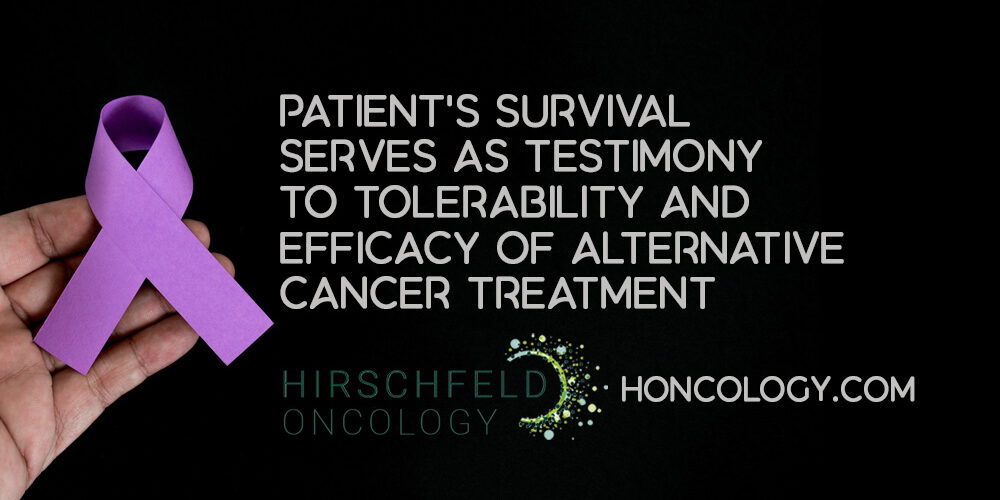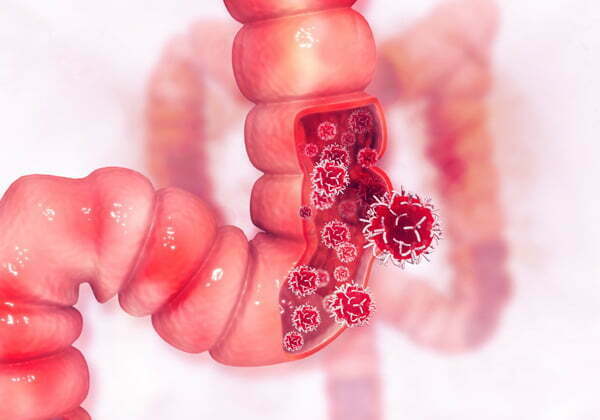Introduction to Managing Cancer Treatment Side Effects
Overview of Cancer Treatment Side Effects
Cancer treatments such as chemotherapy, radiation, and targeted therapies often affect healthy cells alongside cancer cells. This can lead to a wide range of side effects including fatigue, nausea, hair loss, changes in appetite, blood count alterations, cognitive difficulties, and skin changes. Side effects may also impact mental health, fertility, and daily functions like bowel and bladder control.
Importance of Personalized Management
Because every individual reacts differently to treatment, side effects vary widely in type and severity. Managing these effects effectively requires personalized strategies tailored to each patient's symptoms, lifestyle, and treatment plan. Addressing side effects early can enhance treatment tolerance, minimize complications, and improve overall quality of life.
Role of Healthcare Teams in Side Effect Management
Healthcare professionals play a vital role in anticipating, monitoring, and managing side effects. They collaborate with patients to create personalized care plans, advise on symptom relief, prescribe medications, and provide supportive resources. Open communication between patients and healthcare teams ensures timely intervention and promotes better outcomes during and after cancer treatment.
Common Physical Side Effects and Practical Management Tips

Fatigue
Fatigue is one of the most common and persistent side effects experienced by cancer patients during and after treatment. Managing fatigue involves balancing periods of rest with light exercise such as walking, maintaining hydration, and consuming small, protein-rich meals throughout the day.
Nausea and Vomiting
Nausea and vomiting frequently occur during chemotherapy and can be alleviated through prescribed anti-nausea medications taken proactively. Eating small, frequent meals, exploring gentler flavors like ginger or lemon, and avoiding an empty stomach are practical strategies.
Hair Loss
Hair loss typically begins one to three weeks after starting treatment. Patients can prepare by using wigs, scarves, or hats, and protecting the scalp from sun exposure. Hair usually regrows 2-3 months post-treatment.
Skin and Nail Changes
Common skin changes include dryness, rash, and increased sensitivity. Gentle cleansing with mild soaps, avoiding irritants, moisturizing, sun protection, and wearing loose natural fabrics help manage symptoms. Nail changes may include brittleness and discoloration.
Blood-Related Issues
Blood cell counts can decrease, leading to anemia, increased risk of infection, bruising, or bleeding. Patients should monitor symptoms such as fatigue or infections closely and maintain good hygiene. Healthcare providers may recommend supplements or interventions.
Bowel and Bladder Problems
Cancer treatments can cause diarrhea, constipation, urinary incontinence, or retention. Management includes dietary adjustments to increase fiber and hydration for constipation, medications or diet changes for diarrhea, and timely medical consultation for bladder issues.
Peripheral Neuropathy
Symptoms like tingling, numbness, or burning in hands and feet can affect balance and fine motor skills. Patients should report these early for management, use protective clothing like mittens, and take safety precautions to prevent falls.
Swelling and Lymphedema
Swelling may occur due to lymph node removal or damage, leading to lymphedema or edema. Elevating limbs, wearing compression garments, reducing salt intake, and consulting specialists help control swelling.
These practical approaches, combined with open communication with healthcare teams, can help patients better manage physical side effects and improve quality of life during cancer treatment.
Cognitive, Emotional, and Psychosocial Challenges During Treatment

Cognitive Changes ('Chemo Brain')
Many cancer patients experience cognitive difficulties during treatment, often referred to as Chemo Brain and Cognitive Issues. This condition involves memory problems, trouble concentrating, and confusion. Coping strategies include getting sufficient rest, engaging in physical activity, using organizational tools like notes and reminders, and mental exercises to help maintain cognitive function. See also Cognitive issues after chemotherapy and Chemo Brain Management.
Mental Health Issues Such as Anxiety and Depression
Anxiety and depression are common among people undergoing cancer treatment. Emotional distress can affect treatment adherence and overall recovery. Recognizing symptoms early and seeking professional mental health support is crucial. Psychological counseling, support groups, and relaxation techniques can alleviate these challenges. For more information, visit Mental health support during cancer treatment and Psychosocial problems in cancer patients.
Social Isolation and Distress
Social isolation often accompanies cancer treatment due to physical limitations or emotional vulnerability. This can increase feelings of distress and loneliness. Connecting with peer support groups or online cancer communities can provide emotional reassurance, reduce isolation, and foster positive coping. Resources are available through American Cancer Society support programs and Cancer Survivors Network.
Importance of Psychosocial Support and Counseling
Effective psychosocial support enhances patients' quality of life. Health care providers should routinely assess psychosocial needs and refer patients to counseling or support services. Programs like the American Cancer Society's support networks offer resources tailored to emotional and social well-being. For an expanded overview, see Psychosocial problems in cancer patients and Supportive care in cancer.
Strategies to Cope with Emotional Side Effects
Managing emotional side effects involves:
- Acknowledging feelings without judgment
- Practicing mindfulness and relaxation techniques (Mindfulness and relaxation techniques)
- Maintaining physical activity for mental health benefits (Maintaining physical activity during treatment
- Keeping regular routines to foster normalcy
- Seeking support from family, friends, and health professionals
Open communication with the healthcare team enables personalized care and better management of emotional challenges during treatment. For guidance, see Communication with healthcare providers and Psychosocial support for cancer patients.
Nutrition and Lifestyle Strategies to Mitigate Side Effects

Dietary Adjustments for Nausea, Appetite Loss, and Taste Changes
Cancer treatment often causes nausea, loss of appetite, and taste changes that can make eating challenging. Eating small, frequent meals rather than large ones helps prevent nausea. Incorporating herbs like ginger, lemon, and peppermint may soothe digestive discomfort. For taste changes, using tart foods, sour candies, and non-metal utensils can improve flavor perception and make meals more enjoyable. See also Nausea and Appetite Loss in Cancer.
Managing Constipation and Diarrhea with Diet and Hydration
Constipation during treatment can be relieved by increasing dietary fiber intake through prunes, whole grains, legumes, and fruits, alongside keeping well-hydrated and engaging in light physical activity. Diarrhea requires careful rehydration with fluids high in electrolytes like broth or sports drinks, eating bland nutrient-dense foods, and adjusting fiber intake with professional guidance to avoid worsening symptoms. Refer to Diet Tips for Constipation During Cancer Treatment and Diarrhea Management during Cancer Treatment.
Importance of Physical Activity and Rest Balance
Balancing rest with gentle physical exercise like walking can improve physical endurance and mental well-being during cancer treatment. Light movement helps reduce fatigue, maintain muscle tone, and support bowel function without overexertion. For more, see Physical Activity Benefits for Cancer Patients and Fatigue, Weakness, and Sleep Disturbances.
Hydration and Eating Small Frequent Meals
Maintaining hydration throughout the day is essential to prevent side effects like dehydration and fatigue. Drinking water, decaffeinated teas, or juices supports overall health. Eating smaller, protein-rich meals or snacks at regular intervals ensures sustained energy and nutritional support. Related topics include Managing Fatigue, Weakness, and Sleep Disturbances and Chemotherapy Fatigue Tips.
Lifestyle Tips to Maintain Strength and Reduce Fatigue
Adopting a consistent daily routine, including adequate sleep and stress management, helps combat treatment-related fatigue. Using comfort items, maintaining normalcy through familiar activities, and seeking support from family and healthcare providers enhance both emotional and physical resilience. See also Mental Health and Cancer, Managing Stress During Cancer Treatment, and Coping with Chemotherapy.
Hirschfeld Oncology's Integrated Approach to Treatment and Support

What role does Dr. Azriel Hirschfeld play in the care provided at Hirschfeld Oncology?
Dr. Azriel Hirschfeld serves as the medical leader and visionary at Hirschfeld Oncology. He orchestrates the integrated approach to cancer treatment, ensuring personalized plans that blend standard therapies with innovative techniques tailored specifically to each patient's needs. His leadership fosters a collaborative environment where physicians, nurses, and staff work as a cohesive team, delivering care grounded in scientific research, compassion, and vast clinical experience. Dr. Hirschfeld also supports patients and families through complex decisions, reinforcing the practice's commitment to patient-centered care.
How does the medical team at Hirschfeld Oncology collaborate to design treatment plans?
The team employs a multidisciplinary strategy, pulling expertise from oncologists, diagnostic specialists, and supportive care providers. They use advanced diagnostics for early cancer detection, emphasizing a personalized approach by factoring in medical conditions, genetic profiles, and lifestyle. Continuous plan adjustments occur based on patient responses and evolving scientific data. Importantly, supportive elements like emotional support, nutrition, and pain management are integral, enhancing patients' overall quality of life during treatment. For more information on managing side effects and supportive care, see Managing Cancer-Related Side Effects.
How does Hirschfeld Oncology's approach combine science, compassion, and experience in cancer treatment?
Hirschfeld Oncology balances cutting-edge therapies with attention to patients' emotional and spiritual well-being. For example, they integrate psychosocial interventions such as Meaning-Centered Pain Coping Skills Training (MCPC), helping patients build resilience and find meaning during treatment. They actively seek patient feedback to include family caregivers and adopt remote healthcare methods, improving accessibility. This combination ensures that scientific innovation is paired with empathy and experienced clinical judgment for comprehensive care. For insights into psychosocial support in cancer care and mental health in cancer care, visit Psychosocial care in cancer patients.
What innovative strategies does Hirschfeld Oncology incorporate to redefine cancer care?
The center uses advanced immunotherapies that capitalize on the immune system's ability to selectively fight cancer with fewer side effects. Targeted therapies address specific molecular drivers of tumors, and research into gene editing (like CRISPR), personalized vaccines, and CAR-T cell therapies expands treatment horizons. Technologies such as nanotechnology for drug delivery in oncology enhance precise drug delivery, minimizing harm to healthy tissues. AI-driven diagnostics in cancer care personalize treatment decisions further. Participation in cutting-edge clinical trials, including bacterial-magnetic targeted therapies, reflects their commitment to pioneering future cancer treatments. Learn more about targeted therapy side effects and innovations.
Patient Advocacy and Digital Health Empowerment at Hirschfeld Oncology

How Does Hirschfeld Oncology Advocate for Cancer Patients?
Hirschfeld Oncology champions cancer patient advocacy by integrating advanced digital health tools throughout the care journey. These technologies promote active patient engagement, allowing individuals to monitor symptoms, access personalized health information, and communicate effectively with their care team. For more information on Managing Cancer-related Side Effects and Support for Cancer Patients and Caregivers, see these resources.
How Are Digital Tools Used to Enhance Self-Management and Personalized Care?
By leveraging tailored digital platforms, Hirschfeld Oncology supports patients in managing cancer treatment side effects and making informed decisions. These tools provide customized educational resources, symptom tracking, and real-time feedback to patients, enabling precision care that aligns with each person's unique needs. Learn more about Managing Chemotherapy Side Effects and Cancer Treatment Side Effects Strategies.
What Barriers to Digital Health Does Hirschfeld Oncology Address?
Understanding that digital literacy and privacy are significant concerns, Hirschfeld Oncology takes a proactive approach. Educational support helps patients navigate technology confidently, while stringent privacy protocols safeguard sensitive health data, ensuring trust and accessibility. See guidance on oncology patient safety strategies and managing cancer treatment side effects.
How Are Patients Involved in Developing These Digital Tools?
Hirschfeld Oncology employs participatory design principles, engaging patients directly in creating and refining digital health solutions. This collaboration ensures that tools are user-friendly and truly meet patients' preferences and challenges. Resources on Patient Experience in Cancer Treatment and Symptom Management provide further insights.
How Does Hirschfeld Oncology Foster a Supportive and Empowering Environment?
Beyond technology, Hirschfeld Oncology cultivates a patient-centered culture emphasizing open communication, shared decision-making, and continuous support. This environment empowers patients to take an active role in their care, fostering confidence and well-being throughout their cancer experience. For more about Emotional Support After Cancer Treatment and Mental Health Support During Cancer Treatment, visit these links.
Additional Support and Resources for Managing Side Effects
Availability of Patient Education and Side Effect Management Materials
Patients undergoing cancer treatment can access a wealth of educational materials tailored to manage common side effects. These resources often include pamphlets and guides that explain symptoms such as nausea, fatigue, and hair loss, and provide practical advice on prevention and relief strategies. Many organizations, including the American Cancer Society support programs, offer these materials in multiple languages for broad accessibility.
Role of Support Groups and Mental Health Services
Joining support groups provides emotional comfort and shared experiences, reducing feelings of isolation during treatment. Mental health services, including counseling and therapy, play a crucial role in addressing anxiety and depression in cancer patients, and distress associated with cancer and its treatments. Many healthcare facilities encourage open dialogue and provide referrals to psychosocial support in cancer care to help maintain mental well-being.
Access to Nutritional Counseling and Pain Management
Nutritional counseling helps patients manage eating-related side effects like nausea, appetite loss, and taste changes by offering personalized dietary plans. Pain management in cancer care is integral to comprehensive care, with options ranging from medications to techniques like massage and acupuncture, aimed at improving quality of life.
Importance of Early Symptom Reporting and Follow-Up Care
Timely communication of symptoms to healthcare teams allows for early interventions, preventing complications and improving outcomes. Follow-up care ensures ongoing monitoring of side effects, providing support long after treatment ends and addressing any late effects of cancer treatment.
Use of Complementary Therapies and Palliative Care
Complementary therapies such as yoga, meditation, and acupuncture can alleviate side effects like nausea, neuropathy, and fatigue. Palliative care in cancer treatment focuses on symptom management to enhance comfort and quality of life throughout and after treatment, not just at end-of-life stages.
Engaging with these resources and services empowers patients to effectively manage side effects and maintain a better quality of life during their cancer journey.
Conclusion: Empowering Patients Through Knowledge and Support
Summarizing Management Strategies
Effective management of cancer-related side effects involves a multifaceted approach including rest, hydration, dietary adjustments, protective skin care, and medication where required. Tools like symptom journals and routine monitoring help tailor care. Supportive therapies such as physical activity, mental health counseling, and complementary practices aid symptom relief and promote well-being.
Encouraging Open Communication
Patients are urged to maintain open and honest dialogue with their healthcare teams. Immediate reporting of symptoms, concerns, or side effects allows for timely interventions, preventing complications and enhancing comfort. Personalized advice and adjustments to treatment depend on transparent communication.
Personalized Care and Advocacy
Every individual's experience with cancer treatment is unique, necessitating personalized management tailored to specific needs and responses. Patients are encouraged to advocate for themselves, seeking information, using available resources, and actively participating in decision-making.
Nurturing Hope and Quality of Life
Knowledge and support empower patients to face treatment challenges confidently, maintaining hope and improving quality of life. With comprehensive care and support, many individuals experience symptom control and return to meaningful activities during and after treatment.





.png)


.png)
.png)




